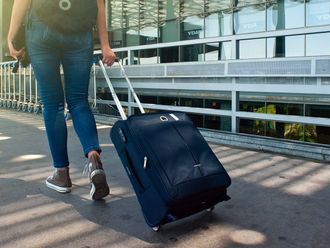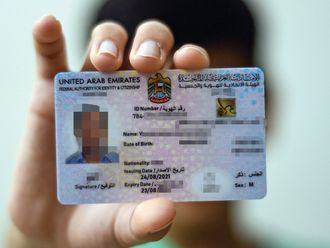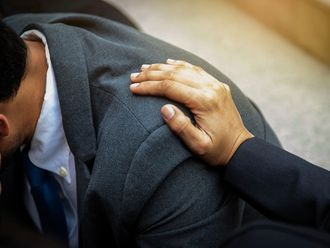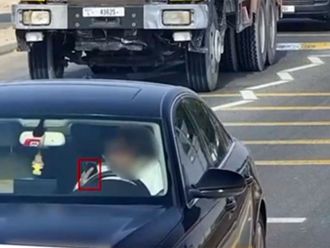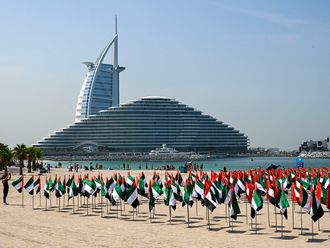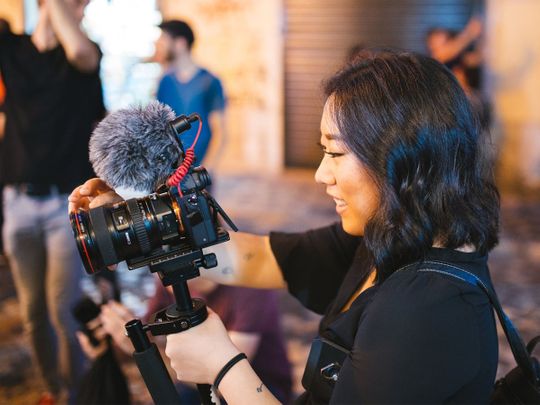
Dubai: From fashion and beauty, to cooking or tourism – there is no dearth of online content, whatever your area of interest may be.
If you are an online content creator, whether blogger or vlogger, and would like to post unique, funny content online, what are the UAE’s laws that you should keep in mind?
This was the query raised by a Gulf News reader.
She asked: “I live in Abu Dhabi, and I am planning to start a YouTube channel soon, posting funny videos, like dancing in front of strangers and singing. I will film their reactions and also promote all the tourist spots in the UAE. I am also planning to order some props for the videos, but before I do that I just wanted confirm that I am allowed to do this in the UAE. I need your advice, as this is something new, and I’m sure people will love it as my message will be to promote the UAE all the way.”
Rama Hussein Nawas, Corporate and Commercial Associate at The Legal Group Advocates & Legal Consultants, spoke about how the UAE has become an attractive destination for bloggers and vloggers, and how they may need to apply for special permissions to take photographs and videos in public.
“Vloggers are not required to obtain any licence for publishing personal photos or photographs taken in public places on the vlog, provided that no person in the public place appears in the photographs and no photograph is taken in places where a ‘No Photography’ sign is hanging, such as some governmental and semi-governmental departments and archaeological sites,” Rama said.
“However, television and art photography requires permits from the competent authority according to the location where the photography is done. Such permits are often valid for some days, which means that no permit is given for a long period. The authorities that issue the permits differ according to the location where the photography is desired, for example photography in public parks requires permit from the concerned municipality,” she added.

Television and art photography requires permits from the competent authority according to the location where the photography is done.
Rama mentioned that while the cost of these permits may vary depending on the relevant authority, it is important for vloggers to be aware of the federal laws around cybercrimes.
Penalties
“The UAE legislator denounced every intentional expression about any person or entity deemed by the average person to be insulting or offensive to the honor or dignity of that person or entity through the content posted via social media sites,” Rama said.
Article 21 of Federal Law No. 5 of 2012 imposes a fine of up to Dh500,000 and/or imprisonment of up to six months on anyone who invades another person’s privacy or records a photo or scene for the purpose of defamation of or offending another person or for attacking.
Rama also spoke about Article 38 of Federal Law No. 5 of 2012, which looks at State prestige. It states: “Any person who provides any organisations, institutions, authorities or any other entities through the computer network or any information technology means with incorrect, inaccurate or misleading information, which may damage the interests of the State or injures its reputation, prestige or stature, shall be punished by temporary imprisonment."
Responding to the reader’s query specifically, Rama said: “The vlogger must take into account the differences in the UAE, as it is characterised by the diversity of nationalities, religions and cultures. Accordingly, vloggers and the public should be careful about what is published on their pages, even in good faith, because every person living in the UAE is entitled to maintain privacy in his or her life and no one may deprive him or her of such right. Many people expose themselves to penalties due to the lack of knowledge of the law, as the main rule states that ‘ignorance of law excuses no one.’”
Obtaining consent
It is also important for the vlogger to obtain the written or recorded consent of the people who have been filmed.
“In the event that the content is a sudden photography of people reactions, the vlogger shall obtain the consent after making the video, and such consent shall be recorded in writing or through a short video, in which the person acknowledges his consent to use this video through social media sites in order to protect the content owner from any ill-intentioned person,” Rama said.
Understanding sensitivities
Gulf News also spoke with the Sheikh Mohammed Centre for Cultural Understanding (SMCCU) to find out what content creators should keep in mind when it comes to cultural sensibilities.
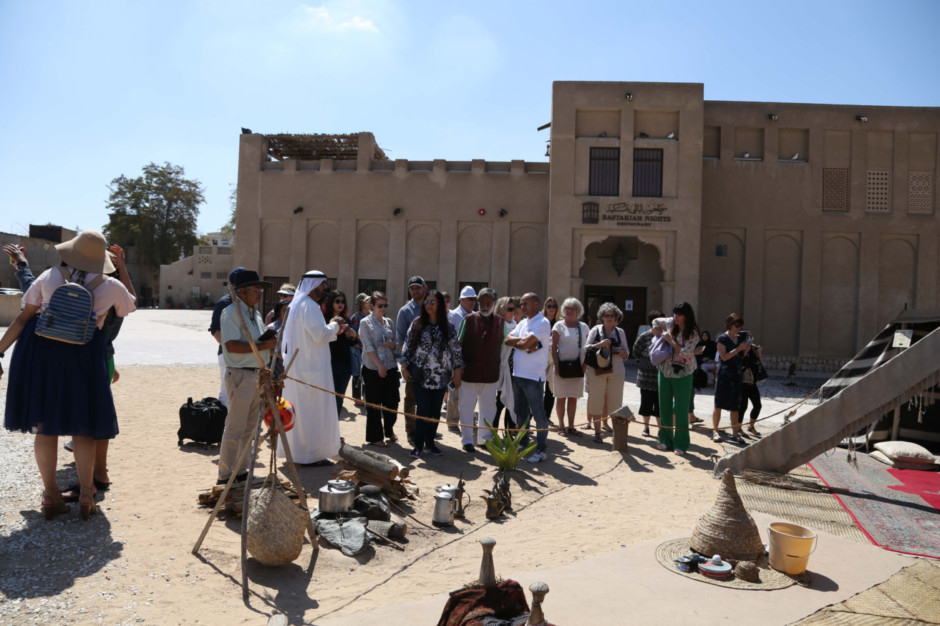
Meera Al Falasi, social media coordinator and presenter at SMCCU, spoke about how taking a person’s picture or video without their consent was not just insensitive but also illegal.
“Generally, in the UAE, it is against the law to take a picture or a video of anyone in public without their consent, for many reasons including the importance of privacy in the culture. A lot of public places would also request a media form when taking a video for media purposes in public. Article 378 of the UAE Penal Code states that taking pictures without obtaining permission will result in the camera being confiscated, recordings destroyed and photographers being charged a fine,” she said.

Generally, in the UAE, it is against the law to take a picture or a video of anyone in public without their consent, for many reasons including the importance of privacy in the culture.
Ruqaya Al Hamiri, a presenter at the centre, also spoke about how humour can be subjective to personal and cultural experiences.
“When involved with strangers in the UAE, people have to keep in mind that the UAE is a diverse country and that Emirati people are very traditional, too. That means whatever the joke or topic of conversation might be, you have to be mindful of people’s differences to you, especially when it comes to religion. Otherwise, people are people and a good joke won’t be lost in translation,” she said.

Whatever the joke or topic of conversation might be, you have to be mindful of people’s differences to you, especially when it comes to religion
Commenting on how perceptions can differ on what is considered funny or offensive, Ruqaya also shared some basic tips and best practices that should be followed if a person is recording a video or taking pictures in public.
“First and foremost, ask for consent to be filmed and published, before approaching anyone. Refrain from touching the person or getting into their personal space before asking for permission,” she concluded.

